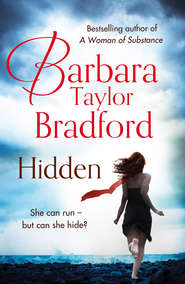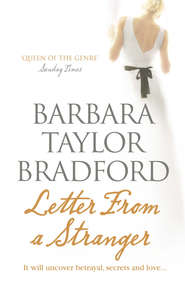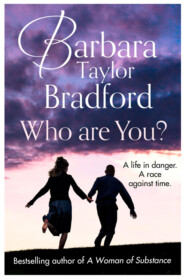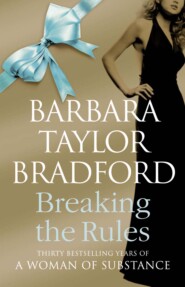По всем вопросам обращайтесь на: info@litportal.ru
(©) 2003-2024.
✖
Dangerous to Know
Настройки чтения
Размер шрифта
Высота строк
Поля
But I would not be here in winter. I would be in France at my property in Provence. For a long time now I have lived in an old mill that Sebastian and I remodeled some years before, and it is there that I write my books, mostly biographies and other works of nonfiction.
Sebastian and I found the property the first year we were married, and because I fell madly in love with it he bought it for me as a wedding present.
The day we stumbled on it there was a piece of jagged wood nailed to the dilapidated old gate on which someone had scrawled, in black paint, Vieux Moulin—old mill—and we kept that name. A second primitive wooden board announced that the land and the mill were for sale, and it was those neglected acres of land that eventually became my beautiful gardens.
We enjoyed working on the mill together, Sebastian and I, and much of its restoration and renovation was inspired by his ideas as well as mine. Vieux Moulin and Ridgehill were my two real homes, one because it had been in my family for hundreds of years, the other because it was truly of my own creation. It didn’t take much prompting for me to become quite lyrical about them both, since they were truly special to me. I divided my time between these two old houses; the one-room studio in New York was just a pied-à-terre, a convenient place to hang my hat and my typewriter whenever I needed to be in the city for work.
When I had arrived in Connecticut in August, on my annual visit, I had intended to return to Provence at the end of October. I still planned to do so. However, there was the matter of the autopsy report; I felt I couldn’t leave without knowing the facts. On the other hand, the police would be dealing with Jack and Luciana, Sebastian’s next of kin, and not with me. There was no real reason for me to hang around, other than my own anxiousness, my desire to know the truth about his death.
I wondered what the autopsy would turn up, what the Chief Medical Examiner’s verdict would be. An involuntary shiver ran through me despite the warmth of the day, and determinedly I tried to cling to the belief that Sebastian had died of natural causes.
Pushing my troubling thoughts aside, I went and leaned against the wooden railings and glanced around. The trees in the gardens below, and sweeping down the hillsides to the waters of Lake Waramaug, seemed more brilliant than ever, fiery-bright plumage silhouetted against a clear cerulean sky. Some leaves had already started to fall earlier than usual, I noticed, and I knew that by the fifteenth of the month the branches would begin to look bare and bereft.
Bereft. That was exactly how I felt.
I wondered dismally if I were the only person mourning Sebastian. Certainly his children weren’t grieving, and who could really know what an old man like Cyrus felt. He was, after all, ninety years old and in his dotage, with one foot in the grave himself. He had survived three of his progeny; now the last one was dead. How terrible it must be to outlive your own children, to have to bury them.
For a long time Sebastian had been the only remaining offspring of Cyrus Locke. As far as we knew, he was the only one living. There was a sister who had disappeared years ago, and what had happened to her was a genuine mystery, baffling to us all. She might be dead or alive.
Sebastian was the eldest child of Cyrus by his first wife, who had not survived the birth. There had been three other children by his second wife Hildegarde Orbach Locke, two girls and another boy.
Glenda, Sebastian’s half sister and the closest in age to him, had committed suicide years before. His half brother Malcolm had drowned in a boating accident on Lake Como in Switzerland, in questionable circumstances. And Fiona, the youngest sibling, was the one who had vanished into thin air seven years ago, lost somewhere in that nether world of drugs peopled by the addicted, the depraved, the pitiful, and the homeless. The walking dead, Sebastian had called them.
Ever since her disappearance, Sebastian had been searching for Fiona and, as far as I knew, detectives in the employ of Locke Industries continued to look for the vanished woman.
The ancient patriarch Cyrus Locke aside, there were only Jack and Luciana left. And neither of them had children. How tragic it was that the Locke dynasty had so badly disintegrated into such a sorry state over the years; this great American family was almost finished, defunct. Malcolm Lyon Locke, the founding father, would turn over in his grave if he knew. I couldn’t help wondering what he would think of his descendants if he were alive. That canny Scotsman from Arbroath, who had set sail for America from Dundee in 1830 and had been a millionaire by the time he was twenty-eight, would most likely be disappointed. And I, for one, wouldn’t blame him.
If Luciana continued to hate the idea of children and would not permit herself to conceive, and if Jack did not remarry and beget a child, then the Lockes truly would be extinct. Well, not quite. There were some cousins, grandchildren of Cyrus’s brothers Trevor and James, but they were somewhat ineffectual, nonentities really, who kept in the background and lived off their unearned incomes.
There was a knock on my bedroom door and I heard Jack’s voice calling, “Can I come in, Viv?”
“Yes,” I answered and as I went through into my bedroom the door opened and he rushed in, looking triumphant.
“I’ve done it!” he exclaimed. “I talked to the pastor over in Cornwall. Funeral’s set for eleven. Burial forty-five minutes later. At Cornwall Cemetery. Up the road from the church.”
“I know where it is,” I murmured. “I was thinking, Jack, maybe we ought to ask a few people back to the farm for lunch—”
“A wake? Is that what you mean?” He looked at me curiously.
“No, of course not,” I replied, shaking my head swiftly. “Not a wake. Just a simple lunch for a few close friends and family.”
He guffawed. “That’s a belly laugh! What family?”
“There’s you and Luciana. And me. And your grandfather and Madeleine. You can’t very well send them back to Maine without feeding them. Also, I’m sure some of your Locke cousins will want to come. And there will be a few of Sebastian’s friends, people from Locke Industries and the Locke Foundation. His assistants, his secretaries, close colleagues.”
“I suppose you’re right,” he admitted grudgingly, looking put out. “We’d better make lists. Compare notes later.”
“What about the other wives that are still alive coming to the funeral? Betsy Bethune, for instance?”
“You can forget about Betsy,” he muttered. “She’s playing the piano in Sydney. She’s apparently on some sort of world concert tour.”
“And what about Christabelle?”
“Good God, Christa! What made you think of her? I don’t know where she is. Neither does Luciana. She’s probably dying. Of cirrhosis of the liver. Somewhere. Don’t invite her. Luciana’ll have your guts for garters. She can’t stand her mother.”
“What about the memorial service at St. John the Divine?” I asked, changing the subject.
“Luce is responsible for that. She promised to handle it. Today.”
“Did she finally agree to have it there? You know how…how contrary she can be.”
“You call me a flake, her contrary. You’re being pretty damn tough.”
“I am. It’s about time somebody called it correctly.”
“Brutally honest today, kid. Is that it?”
“Yes. And you’ve been callous, cruel, and coldhearted about Sebastian. Savage, in fact. I find that hard to tolerate. You’re impossible, Jack.”
“Okay, okay. Let’s call it quits. Put our gloves away. Shall we?”
“My pleasure.”
He swung around and headed to the door, but paused on the threshold. “Let’s just get him buried. And memorialized. Then I can beat it. Go back to Paris.”
Instantly, a nasty retort sprang to my lips, but I bit my tongue, and I said in a cool, businesslike tone, “You’d better have the public relations people at Locke Industries prepare the various announcements, and then we’ll go over the material together. Just to make sure they strike the right note. That is, if you wish me to help you.”
“I do. I’ve just spoken to Millicent Underwood. At the foundation. She’s already working.”
“Amazing.”
“What is?”
“Your sudden and inexplicable efficiency.”
“I want to get this out of the way. Over and done with,” he answered. Then he smiled at me.
I stared at him.
I took in that wide, genial smile, noted the complete lack of concern in his eyes, registered yet again the absence of sorrow, and I knew. He was glad. Jack was glad that Sebastian was dead.
This clarity of vision on my part, this sudden rush of knowledge stunned me. I could only incline my head before I turned away from him, walked across the floor to the small writing table in the seating area of the bedroom.
I stood with my back to him, composing myself. “I’ll start making my list,” I mumbled without turning around. I could not bear to look at him.
“See ya, Viv.” Jack slammed the door behind him and was gone.
I remained standing with my hands resting on the writing table, trembling, endeavoring to calm myself. And with growing horror I could not help wondering if Jack Locke had come back to America to commit a crime. Had he returned to murder his father? The mere thought of this sent a chill trickling through me.











